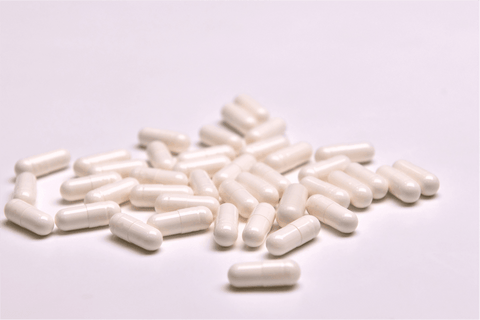Berberine: The Powerful Natural Compound for Metabolic and Overall Health

Key Takeaways
-
Berberine is a bioactive alkaloid known for its metabolic health benefits.
-
Studies suggest berberine may help lower blood sugar levels and support weight management.
-
It has been compared to metformin in its ability to manage type 2 diabetes.
-
Berberine has potential cardiovascular benefits, including reducing cholesterol and triglyceride levels.
-
Proper dosage and precautions should be taken to avoid adverse effects.
What is Berberine?
Berberine is a natural compound found in various plants such as barberry, goldenseal, and Oregon grape. It has been used in traditional Chinese and Ayurvedic medicine for centuries. Recent studies highlight its ability to activate AMP-activated protein kinase (AMPK), a key enzyme involved in metabolism. This activation helps regulate how the body processes energy and may contribute to its effectiveness in managing various metabolic conditions.
How Berberine May Help Regulate Blood Sugar Levels
Research suggests that berberine may help lower blood sugar levels by improving insulin sensitivity and reducing glucose production in the liver. A meta-analysis of randomized controlled trials found that berberine was effective in reducing blood sugar levels in people with diabetes, similar to metformin. By increasing insulin receptor activity and modulating gut microbiota, berberine supports better glucose control, which is particularly beneficial for those managing type 2 diabetes.
Berberine and Heart Health: Lowering the Risk of Heart Disease
Berberine has been shown to lower blood cholesterol and triglyceride levels, potentially reducing the risk of heart disease. It also possesses anti-inflammatory properties that may benefit cardiovascular health. By lowering LDL cholesterol ("bad" cholesterol) and increasing HDL cholesterol ("good" cholesterol), berberine helps maintain a healthier lipid profile. Additionally, its ability to reduce high blood pressure makes it a promising natural supplement for overall heart health.
The Role of Berberine in Weight Management and Obesity
Studies suggest that berberine can help regulate how the body uses fat and glucose, making it beneficial for weight management. Berberine may help lower body mass index (BMI) and improve metabolic markers in people with obesity. It works by modulating fat-regulating hormones, reducing fat storage, and enhancing mitochondrial function to support better energy utilization. These effects may make berberine an effective natural tool for those seeking weight loss solutions.
Berberine for Liver Health: Addressing Fatty Liver Disease
Berberine has shown potential benefits for non-alcoholic fatty liver disease (NAFLD) by reducing liver fat accumulation and improving liver function. Its anti-inflammatory effects may also contribute to liver health. Studies suggest that berberine ameliorates fatty liver disease by decreasing lipid synthesis, improving insulin signaling, and reducing oxidative stress. This makes it a promising supplement for individuals struggling with metabolic-associated fatty liver disease.
Dosage and Safety Considerations
The commonly recommended dosage for berberine is 500 mg three times per day. However, it is essential to consult with a healthcare provider before taking berberine, especially for individuals already on diabetes medications, as it may increase the risk of low blood sugar levels. Some studies suggest cycling berberine intake (e.g., taking it for 8 weeks and then taking a break) to maintain effectiveness and prevent potential gut microbiome imbalances. Adverse effects may include digestive discomfort, nausea, and possible interactions with medications such as blood thinners and antibiotics.
FAQs
Is berberine safe for long-term use?
While studies suggest that berberine is safe for short-term use, more research is needed to determine its long-term safety. Some experts recommend cycling its use to prevent tolerance buildup and maintain its effectiveness.
Can berberine be taken with metformin?
Taking berberine and metformin together may enhance glucose-lowering effects, but it is crucial to consult a doctor before combining them. Both substances lower blood sugar levels, which can increase the risk of hypoglycemia if not monitored properly.
Does berberine have any side effects?
Some people may experience mild gastrointestinal discomfort, including bloating and diarrhea. In rare cases, berberine may interact with medications and increase the risk of bruising and bleeding. Those with liver or kidney conditions should consult their doctor before use.
Conclusion
Berberine is a powerful natural compound with significant metabolic and cardiovascular benefits. It may help lower blood sugar levels, support heart health, and promote weight management. However, proper dosage and medical consultation are crucial to ensuring safety and effectiveness. For high-quality berberine supplements, check out Just Glow.
Summary
Berberine is a natural plant compound with a long history in traditional medicine. Modern research highlights its effectiveness in regulating blood sugar levels, supporting heart health, and improving metabolic function. This blog explores the key benefits, dosage recommendations, and potential side effects of berberine.




